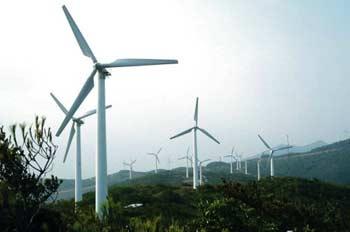China
30 in 30 - 2005: China focuses on sustainable development
WATCH VIDEO
Along with the expanding industrialization over the past three decades, the pressure on the country's environment and limited natural resources has been greater than ever. Urbanization and large populations consumed more than what was being recycled, resulting in shrinking forests and a shortage of clean water.
 |
| Reform and opening up has led to a surge in economic growth, but it's taken a toll on natural resources and the environment. |
Since the mid-1990s, the nation started to reconsider its traditional drive for GDP growth. A strategy of sustainable development was promoted by the central government. As a result, the evaluation of a region's economic achievements also took energy consumption and pollution volumes into account.
The mission proved to be tough and long. The country first saw a downturn in its GDP energy consumption in 2006, when a plan was made to lower consumption by 20% over five years. This goal was a great challenge for a developing country. Measures were taken to shut down high-polluting factories and improve the efficiency of energy-consumption, while a new energy law took effect in 2006 to encourage the development of new energy.
The public became more aware about energy saving, as promotions from the government and NGOs encouraged a green lifestyle.
In June this year, the country banned all plastic bags from shops and markets, a move supported by consumers. And the Beijing Olympics tried out some new methods to clean up the city's skies.
There's still more work to be done, and it's work that is often overlooked when the economy is grabbing all the headlines. But great strides have been taken in the past few years, and every effort is being made to stay on path of sustainable development.
Editor:Zhang Ning



